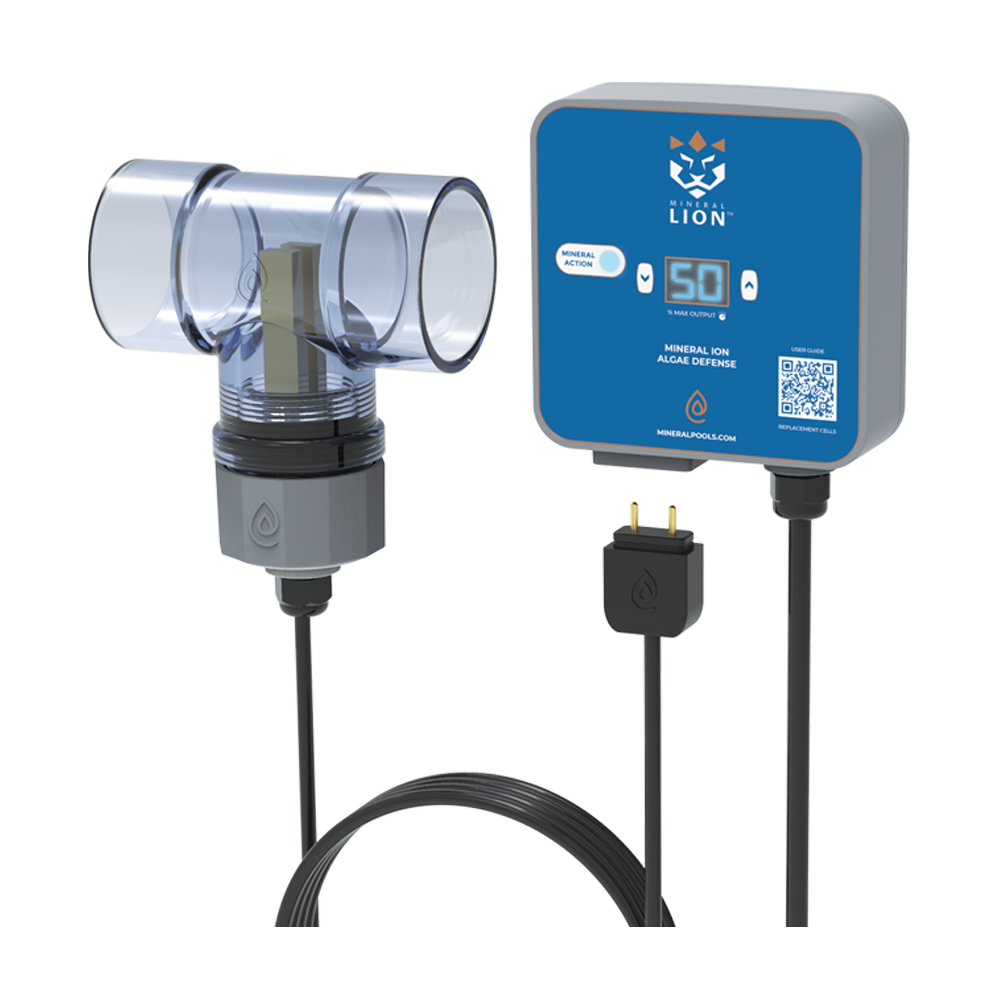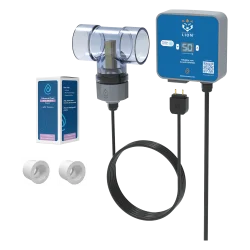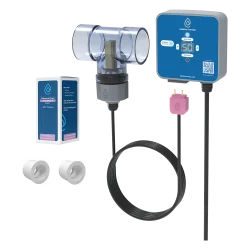What’s the difference between Pool Rx and pool ionizers? Which one is best for you? Read on.
Mineral System Overview
Both Pool Rx and pool ionizers are types of ‘Mineral Systems.’ Mineral Systems are ‘alternative sanitizers’ that use natural minerals instead of chemicals to maintain clean, clear water in pools and hot tubs. While mineral systems are not a replacement for chlorine or bromine, they reduce the requirement for these harsh chemicals. They also reduce the time and cost required to maintain high-quality, enjoyable water to swim and soak in.
The result for Pool Rx and pool ionizers is the same, but the methods for achieving it differ.
Pool Rx Overview
Pool Rx is a chemical delivered to your pool using a small plastic container placed in the pool skimmer or pump basket. Several varieties deliver varying quantities of copper, zinc, and/or silver by dissolving material into the water. The dissolved material builds up a residual in the pool water and releases minerals, which help control algae and bacteria in the water.
Pool Rx costs from around $50 to $99, depending on the variety you choose and the size of your pool. A single container will last up to 6 months before it needs to be replaced.
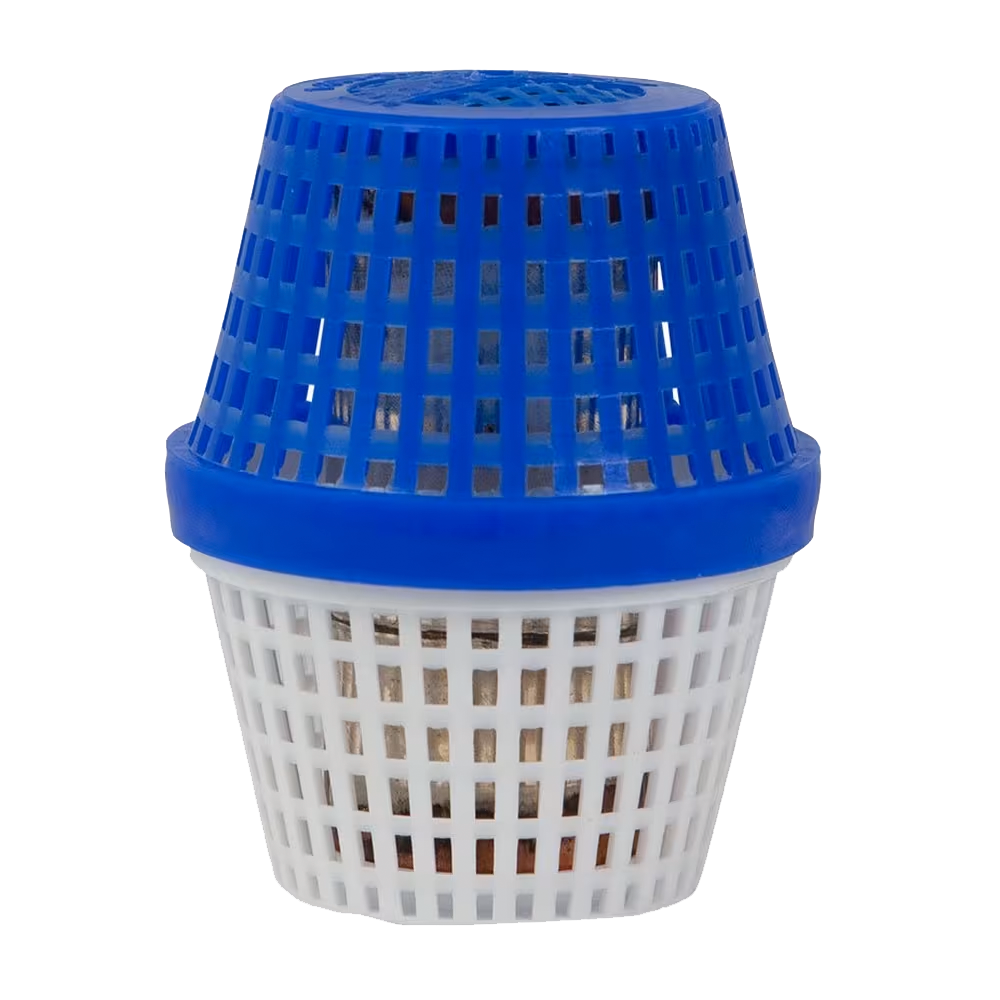
The Pool Rx formula uses a chemical bonding method called chelation to ‘wrap’ the mineral ions so that they are less reactive. This minimizes the risk of the minerals ‘plating’ or collecting on pool surfaces, which can cause staining. However, it decreases the effectiveness, so a high concentration of minerals is needed to react with contaminants.
Pool Rx has a long history and a large customer base. Both homeowners and pool professionals use it to keep algae away and reduce chemical requirements.
Pool Ionizer Overview
There are two types of pool ionizers: solar and inline. Inline ionizers have been around since the 1980s, whereas solar ionizers appeared in the 2010s. Both systems use a combination of copper, zinc, and/or silver to fight algae and bacteria in the water.
Solar Pool Ionizer
Solar pool ionizers float in the pool and use the sun to energize an anode submerged in the water. The charged anode slowly releases mineral ions into the water, which attract algae and bacteria cells and kill them. Most solar ionizers are copper only.
Solar ionizers became very popular in the 2020s because they are cost-effective, easy to use, and make a noticeable difference in swimming pools’ clarity and chlorine requirements.
They cost between $79 and $149, including the replaceable anode, which lasts around 6 months. Replacement anodes sell for around $20.
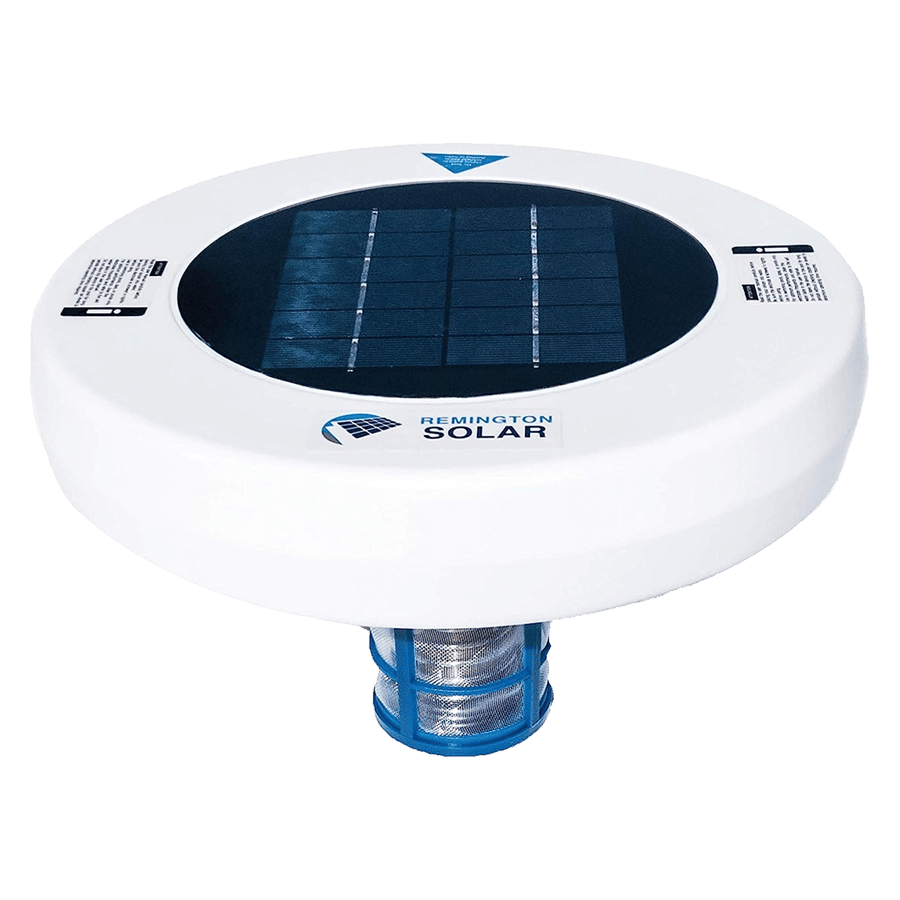
Inline Pool Ionizer
Inline pool ionizers are hooked into the pool’s filtration system. A mineral cell is plumbed using a tee and plugged into an electrical controller. The controller uses standard 120V or 240V power to energize the mineral cell and release minerals. Inline ionizers can be copper only or any combination of copper, zinc, and silver.
Inline pool ionizers have been around since the 80s and were spun off from a NASA technology transfer program. The technology was developed during the Apollo space program to purify drinking water on space missions.
Today, various inline pool ionizers are designed for above-ground and inground pools. Depending on the capacity, features, and manufacturer, they range in price from $199 to $999.
Pool Rx Pros and Cons
Pool Rx Benefits
There are several benefits to the Pool Rx method of pool ionization:
- Reduces chlorine requirement by 50-80%
- No plumbing or electrical installation required
- Easy to administer into the pool
- The chemical chelation process makes it less likely for mineral buildups and staining
Pool Rx Drawbacks
- Must be sized correctly, or excess material will collect on the pool floor and surfaces, which can stain
- Must run the pump constantly after adding to disperse the minerals; otherwise could get concentrated plumes of minerals and staining
- There is no way to adjust the output levels for your specific pool and requirements
- Can’t test the levels
- Not compatible with bromine
- An influx of minerals can clog the filter, requiring additional backwashing
- It needs to be replaced every 6 months with no indication of how much life is left
- Not a replacement for chlorine or bromine
Solar Pool Ionizer Pros and Cons
Solar Pool Ionizer Benefits
- Compatible with both chlorine and bromine
- Reduces chlorine requirement
- Easy to deploy – just throw it into the pool
- Can test for copper and remove the system from the water if the level is too high
- Low cost
Solar Pool Ionizer Drawbacks
- It doesn’t work well in areas with sparse sunlight
- A plastic panel that is always floating around in the pool
- It is hard to maintain the mineral levels recommended by the EPA
- Requires weekly cleaning of the copper anode, which is messy and time-consuming
- Many systems available online are cheaply made and don’t last
- Not a replacement for chlorine or bromine
Inline Pool Ionizer Pros and Cons
Inline Pool Ionizer Benefits
- Compatible with both chlorine and bromine
- Reduces chlorine or bromine requirement by 50-80%
- Installed inline so it is out of the way
- It uses 100% elemental minerals – no chemical additives
- Can test for mineral levels and adjust as needed
- Allow you to adjust settings for pool size and usage
- Mineral cells can last 12 months or longer
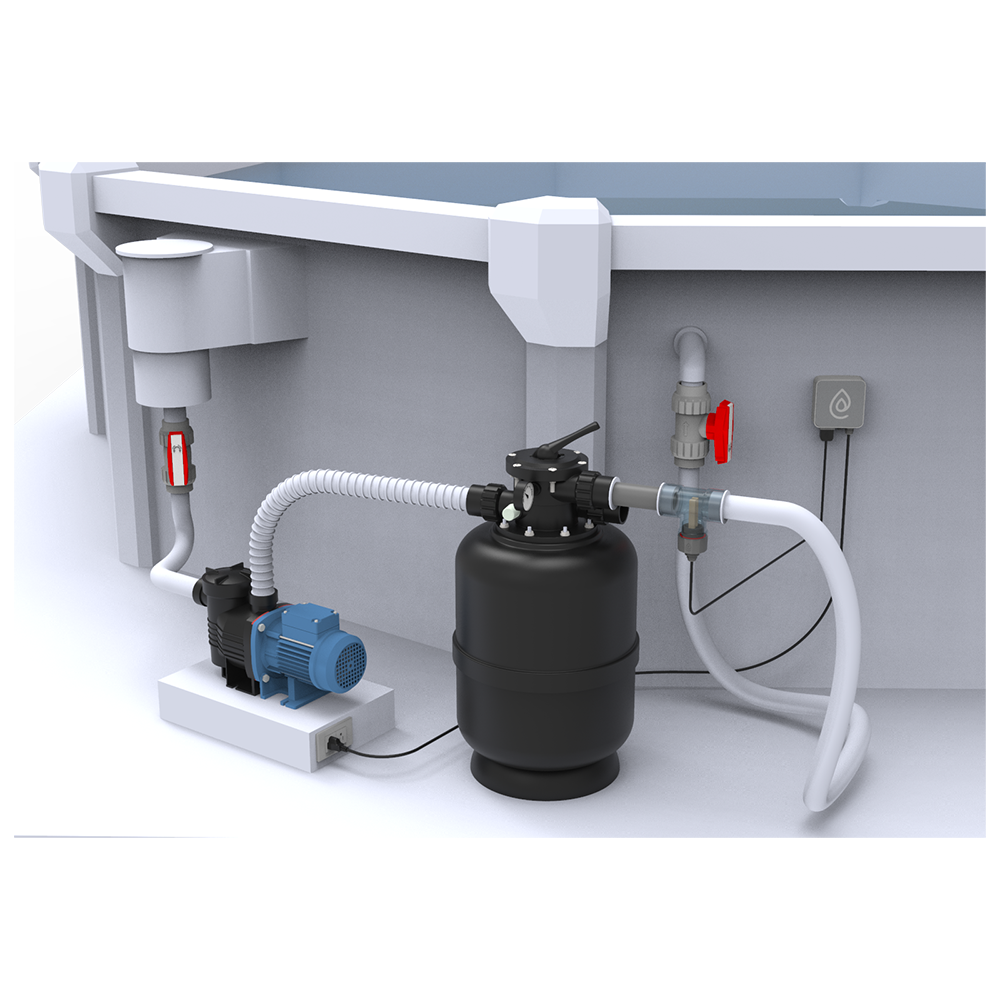
Inline Pool Ionizer Drawbacks
- It must be plumbed in and requires a power connection
- This can lead to an overdose of minerals if testing is not performed regularly
- It is more expensive up front than Pool Rx or solar ionizers
- Not a replacement for chlorine or bromine
Recommendations
For the lowest cost option, the solar pool ionizer is the best, as long as you don’t mind spending 30 minutes a week cleaning the anode, and the floating panel doesn’t bother you.
The inline pool ionizer is the most advanced and configurable option, with the least maintenance, but it has a higher upfront price tag.
Pool Rx is a proven option used by pool professionals. If deployed correctly, it is carefree.
More on Ionizers for Pools and Hot Tubs
Introduction to Hot Tub Ionizers
-
 Mineral Lion Pool Ionizer by ClearBlue IonizerPrice range: $399.99 through $599.99
Mineral Lion Pool Ionizer by ClearBlue IonizerPrice range: $399.99 through $599.99 -
 ClearBlue Mineral System – EPA Registered Ionizer for Pools and Hot TubsPrice range: $399.99 through $899.99
ClearBlue Mineral System – EPA Registered Ionizer for Pools and Hot TubsPrice range: $399.99 through $899.99
Links to Amazon are affiliate links



